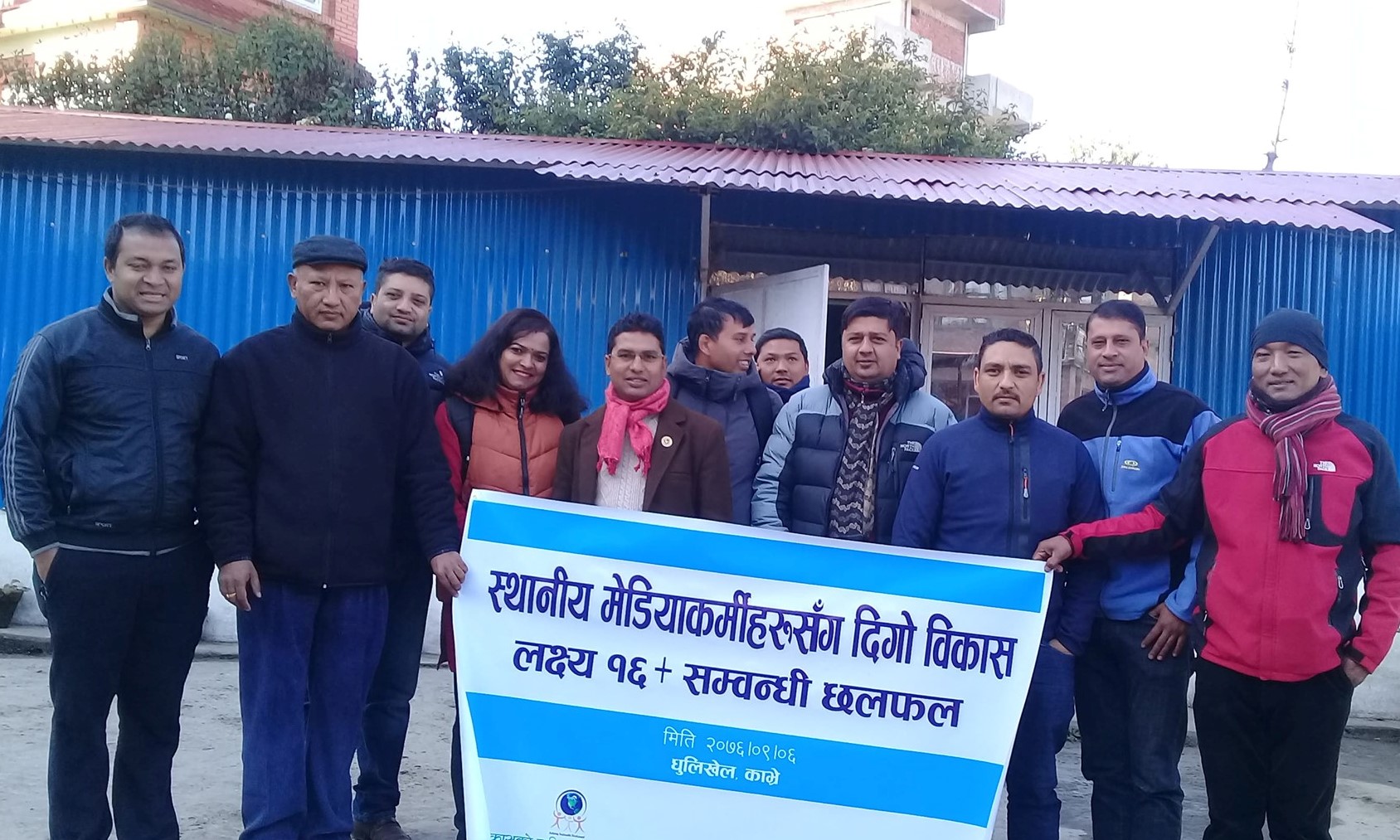Introduction
As Nepal continues its slow transition from conflict to peace, ensuring access to justice for all is vital to ensuring non-recurrence of the violence of the civil conflict, and a sustainable peace. The roles of province and local governments have been increasingly realized for development. UN Human Rights Council, resolution 24/2 A/HRC/RES/24/2 stated that national, sub-national and local governments should share and complement duties to respect, protect and fulfill human rights.
In 2015 Nepal became a state party of 2030 Agenda of Sustainable Development (SDGs) adopted by United Nations. Leave No One Behind is the core principle of 2030 agenda, pledged by world leaders. Nepal is striving to institutionalize SDGs in its system and national plans. SDG 16 is not only the stand alone goal, it is directly and indirectly related with other goals since it embraces key agendas such as peace, access to justice, rule of law, transparency, inclusive and effective institutions and governance, legal identity, right to information and fundamental freedoms.
SDG 16 is enabler, driver and accelerator of SDGs and country like Nepal should give full attention to this goal. SDG 16 is the main goal for fostering peaceful, just and inclusive society. But, SDG 16 should not be seen in isolation. It has strong links with other goals, in line with the integrated and indivisible nature of the agenda. In all, 36 targets directly measure an aspect of peace, inclusion, and just society, which is known as SDG 16+.
In this contextual background, National Campaign for Sustainable Development Nepal (NACASUD-Nepal) has kicked off “Realizing SDG 16+ from Below: A Community Initiative”, shortly SDG 16+ Initiative.
Objectives
Main objective of the initiative is to support in promoting community justice through the implementation of SDG 16+ at the local level.
Specifically, the initiative aims to achieve following three objectives:
Objective 1: Increase civic engagement on promoting SDG 16+ and its implementation
Objective 2: Promote access to justice at local level through the integration of SDG 16 indicators on local government’s plans, polices.
Objective 3: Contribute in enhancing access of public services to people living behind
Geographical Coverage
SDG 16+ Initiative covers Kavrepalanchowk district. This district has 13 municipalities (7 rural municipalities and 6 municipalities). Even the initiative covers the whole district, it has intended to implement some of its activities in Panauti Municipality and Bethanchok Rural Municipality, which are located in southern part of the district.
Timeframe
Starting: 1 September 2019 Ending: 30 August 2021 (24 months)
Target Groups
Municipalities; NGOs; civil society networks, alliances, federations and coalitions; local units of political parties; and activists those representing and advancing the public voices especially of women and marginalized people are the target groups of the initiative.
Final Beneficiaries
The peoples especially women and marginalized people including Dalits, indigenous nationalities, people with disability, LGBTI community, and the people living in remote areas are the final beneficiaries of the initiative.
Activities
In order to achieve objectives mentioned above SDG 16+ Initiative has planned to implement following activities:
Objective 1: Increase civic engagement on SDG 16+
Activity 1.1: Organize workshop and develop district SDG 16+ advocacy plan of action and monitoring indicators in district
Activity 1.2: Form SDG 16+ civil society working group and organize meetings in district
Activity 1.3: Produce SDG 16+ progress review report in district
Activity 1.4: Engagement with media to promote SDG 16+ in district
Activity 1.5: Develop youth SDG champions in district through intensive training
Activity 1.6: Organize national conference on SDG 16+
Activity 1.7: Publish SDG sticker and brochures as IEC Material
Activity 1.8: Publish book on Review of SDGs Implementation in South and South West Asia
Activity 1.9: Organize sharing and reviewing programme at national level
Objective 2: Promote access to justice at local level through the integration of SDG 16 indicators on local government’s plans, polices
Activity 2.1: Review the status of SDG 16+ (focused on Access to Justice) in two municipalities
Activity 2.2: Proclaim justice charter in two municipalities
Activity 2.3: Declare justice friendly local government (city/village) in two municipalities
Activity 2.4: Review of local policies and legislations through Access to Justice and human rights perspectives in two municipalities
Activity 2.5: Organize orientation on existing judiciary systems in two municipalities
Activity 2.6: Analyze situation of access to justice in the district
Objective 3: Enhance access of public services to people living behind
Activity 3.1: Training on the justice approach to the development in two municipalities
Activity 3.2: Organize public dialogue on service deliveries in two wards of two municipalities
Approaches
- Civil society networking
- Legal empowerment through civic education
- Capacity development
- Knowledge management
- Studies and policy analysis
- Build partnership with local governments and key stakeholders
Expected Outcomes
SDG 16+ Initiative will produce following outcomes:
- The local indicators on SDG 16+ are developed in a collaboration with local governments and CSOs
- CSOs become active to monitor SDG 16+ by using district advocacy plan and local indicators
- SDG 16+ Progress Review Report published
- A book on SDGs progress and implementation in South and South West Asia published
- Two local governments set up the grounds to promote access to justice for the community
- Public service deliveries become more inclusive and focused to poor, women and disadvantage communities
Budget and its source
Total estimated budget of this initiative is US Dollar 40,000 (approx. NRs. 4,479,800/-). Open Society Foundations provides funding support to this initiative.
Implementation Arrangement
NACASUD Nepal is solely responsible to implement the entire activities. An office has been established in Dhulikhel, Kavre. The initiative maintains accounting and financial management system according to its norms and policies. Internal control system is maintained to check the potential fiduciary risks. There are three staffs including Programme Coordinator, Admin Finance Officer and Office Assistant to implement the activities.
The initiative makes maximum efforts to build collaboration with other similar initiatives at national and local level. Moreover, it collaborates with other like minded organizations, which are working on peace, justice, human rights and governance improvement.
Meeting notes, event reports and quarterly reports are produced. Financial reports are produced monthly and quarterly basis. Periodic reports are submitted to the Open Society Foundations.

